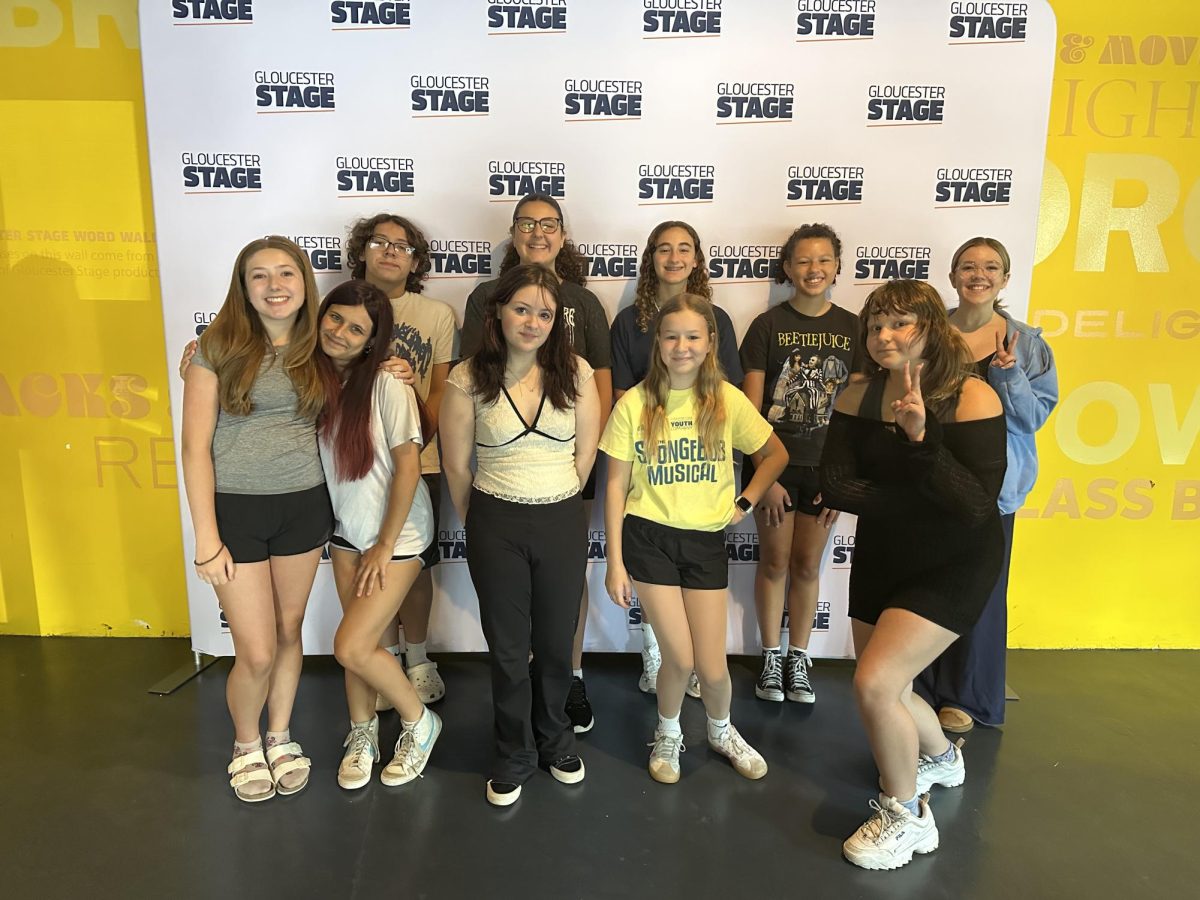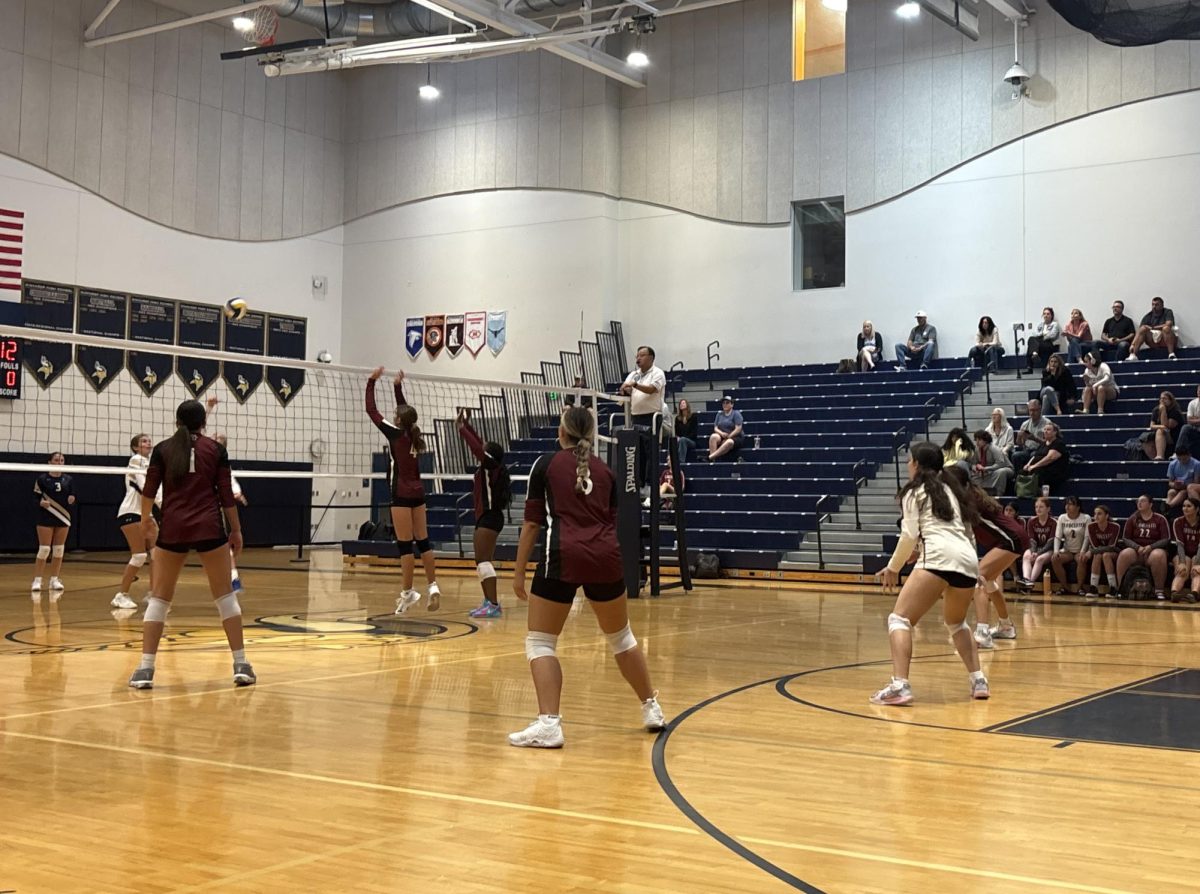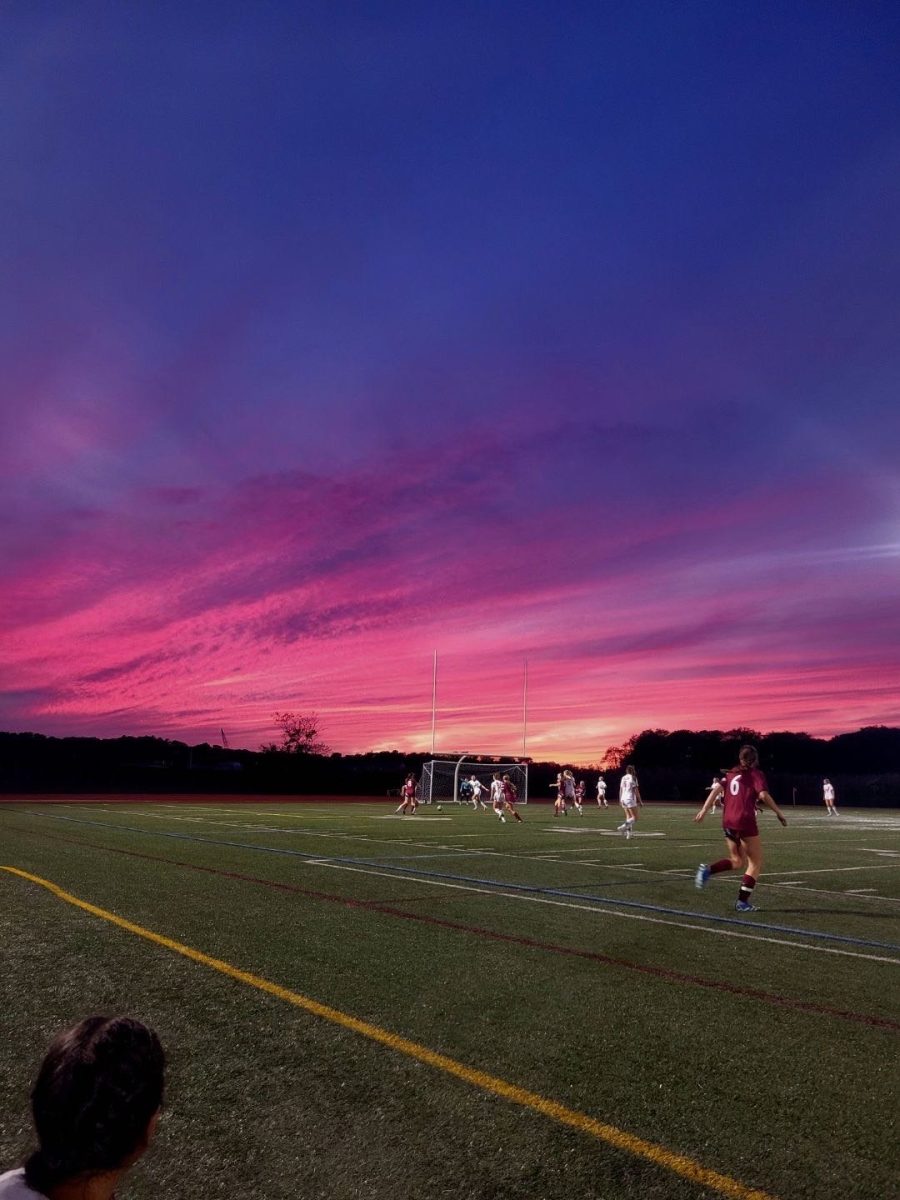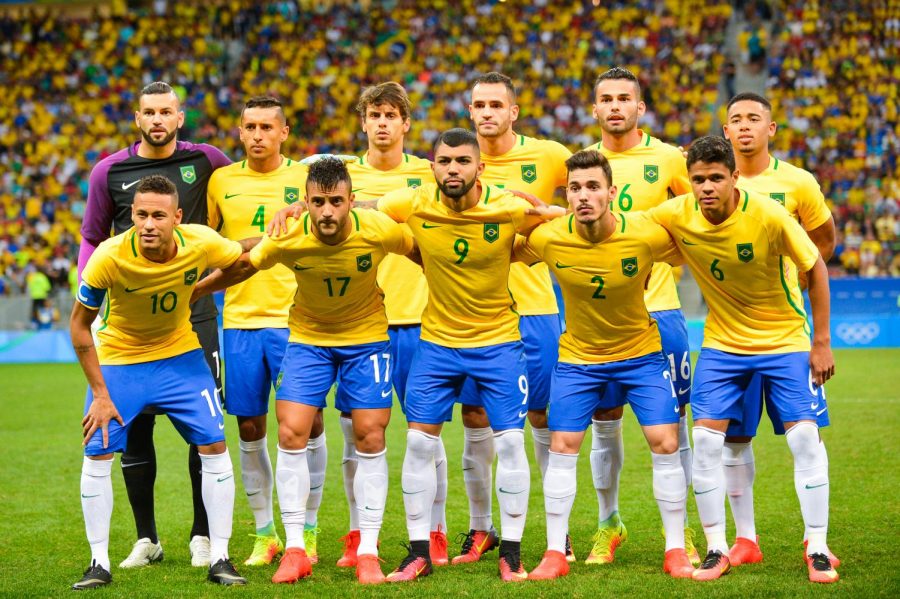Playing the beautiful game: men’s soccer in Brazil
“Joga bonito”
March 2, 2021
Have you ever wondered why Brazilians are so talented at soccer, why Pelé was called the greatest of all time, and why Americans are almost never born with this talent of kicking a ball? It all starts with culture. Brazil has a record 5 World Cup titles, but how did those occur?
For Brazil, it all started in the late 1950s when they created the first dynasty in soccer history. In the 12 year time period from 1958 to 1970, four world cups were played, “O Rei Pelé” (King Pelé) taking part in them and winning 3 World Cups out of these 4. The USA had their best world cup title attempt in 1930 achieving third place which was almost 100 years ago. Their best player arguably was Landon Donovan. He debuted into the professional soccer world in 1999 and retired in July 2018. He is the highest scoring American male in World Cup history.
Brazil’s and the US’s cultures are very different especially when it comes to sports. In America you have a variety of popular sports which means people have many options. American football being one of the most popular, followed by basketball and baseball.
Then you also have sports like tennis, hockey, soccer, and more. In Brazil the main sports are Soccer, volleyball, and handball. You also have different variations of soccer, like futevolei which is actually volleyball without your hands, teqball which is pingpong using your feet, beach soccer, and futsal. Although some of these sports are played in the US, many people do not know of these sports and in Brazil, they are very popular.
A well known sport in Brazil is futsal, which is a 5 vs 5 soccer game played on a small court requiring a quick speed of play. When there are tournaments the whole city will end up knowing and the whole stadium will fill up quickly. You’ll hear people shouting and playing intense samba music using instruments like the surdo, the djembe, the pandeiro, the maracas, etc. You can probably imagine the energy and the pressure. Futsal is quick and agile, and many great Brazilian soccer players bring that on to the soccer field. Famous soccer players like Ronaldinho, Neymar, Coutinho and others originated from futsal.
People who grow up in the USA are surrounded by many different sports and are likely to want to play multiple sports instead of one. This causes people to be good at multiple sports as they will take their time for other sports instead of focusing on one. If they do focus on one sport, the chances of them picking soccer are low especially because soccer isn’t seen as the number 1 sport in America. In Brazil everyone has at least kicked a ball because of how known it is. The way that Americans watch the NFL is the same way Brazilians watch their favorite team in the Campeonato Brasileiro. When their team wins you’re likely to hear fireworks, firecrackers, and air horns.
Another cultural difference between these two countries is the World Cup. The World Cup in Brazil is the time everyone and their grandmas grab anything that will represent their country. Every Time Brazil plays, everyone stops for 90 minutes of their day to watch Brazil fight their way to the next game. The hype and national pride surrounding the World Cup is unmatched in countries like Brazil. When Brazil scores you are likely to hear your neighbors screaming and celebrating. Everyone gathers to the person’s house with the biggest TV in the family or in their friend group. If you haven’t noticed the World Cup in Brazil is a big deal, arguably more intense than the Super Bowl in the US because everyone is coming together as a nation and cheering for one common goal. In the US it’s more likely to have more Americans watching College football instead of rooting for their nation in the World Cup.
Having experienced playing for soccer teams in Brazil and in America, there are some differences in the way they practice and tactics. The US has many club soccer teams that play in different level divisions called NEP, NPL, ENCL, USYS National League, and the DA (Development Academy.) NEP being the least competitive and the DA being the most competitive. If you play for the DA, there are many benefits. You will see scouts at your games and college scholarships even. You can even go pro at 16 years old. In Brazil the chances of you making it to the big leagues are different compared to the US. Brazil has local city teams and then state teams. If you make it to the state teams at a young age the chances of you making it into professional soccer is better. Same goes for Academy, the younger you are when you join, the better. People in Brazil believe going to America for a better career. However once you start playing in the MLS, not many big teams recognize you.
Brazilian teams always have bigger European teams looking for the next Neymar. Real Madrid bought a talented player named Vinicius Junior before he was even able to be traded, who also played futsal. There is also, of course, college. This is the number one way for your talent to be seen in the US. Because there is the MLS super draft every year. There are multiple other levels such as NCAA division 1, 2 and 3. Then NAIA and also NJCAA also known as JUCO. Many Brazilians come to the US for hopefully, a brighter future playing in the MLS. Because although you don’t really get recognized playing in the MLS, The MLS still can get you wealthy and financially happy depending on how good you are of course.
The next World Cup will be in 2022, taking place in Qatar. Four years later, the US will have a chance to reunite soccer with their culture as they will be hosting the 2026 World Cup. The excitement of the World Cup will help attract more fans and hopefully will bring the national spirit across the country as people will travel from all over the world in order to come and watch these games. There’s hope for the US as they have a young, promising team that will have at least 5 years in order to prepare to host the greatest tournament in the world.










![The GHS/MERHS senior cross country runners pose together on Senior Night. [Photo courtesy of Manchester-Essex Athletics]](https://thegillnetter.com/wp-content/uploads/2025/10/Screenshot-2025-10-10-at-11.18.29-AM.png)



















Mr. Cook • Mar 5, 2021 at 7:13 pm
Kayky, great job!
This article is filled with information and interesting ideas about the differences between playing and watching the world’s most popular game in Brazil and the US.
As someone who has been playing for my whole life and who watches a couple of matches every weekend, I’m especially fascinated by all the different forms of soccer and soccer-related sports that are popular in Brazil. Teqball!
I hope you write some more soccer articles in the coming months!
All the best,
Mr. Cook